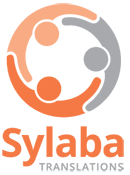
NAATI certification

150+ Translation
Languages

Quality guarantee

ISO
Certified

Culturally appropriate

Context:
The Western acronym “LGBTIQ” has been commonly used to refer to sexual, sex, and gender diverse communities, an integral part of our society. Even though this acronym may seem universal, cultural groups have differing meanings associated with “LGBTIQ”.
In some cultures, “gay” and “transgender” are often used interchangeably, while in some contexts, “intersex” is purely seen through a medical lens and not associated with an identity. ‘Queer’, in particular, may not be widely understood as a form of identity due to its origin from an old English word that means ‘different’ and ‘odd’.
Additionally, in some contexts, cultural and religious taboos can prohibit an open discussion of LGBTIQ issues, resulting in lack of knowledge and understanding about this marginalised community.
As such, “LGBTIQ” may be seen as a foreign concept that does not resonate in some of Australian culturally and linguistically diverse communities.
The lack of culturally specific translations in community languages to meaningfully explore this terminology can add further barriers for communities to understand and embrace LGBTIQ members of their communities. This can result in misunderstandings and ongoing alienation of multicultural LGBTIQ individuals from their own communities.
In addition, inter-generational conflicts may arise in communities where the new generations adopt a more inclusive attitude towards LGBTIQ families and friends in contrast to their parents, especially with the implementation of LGBTIQ inclusive practices as part of the social norm. Such frictions can further perpetuate the belief that “LGBTIQ” is a Western concept with little connection to cultural values, norms, and language.
AGMC
AGMC (Australian GLBTIQ Multicultural Council) received some funding from the Department of Premier and Cabinet Equality Branch to produce resources in community languages. So in 2019, we went on a journey to develop resources to translate the acronym “LGBTIQ” in a way that is culturally safe and relevant to different cultural groups.
We recognised the importance of engaging with the communities to build understanding, acceptance, and inclusion of multicultural LGBTIQ from within their own communities.
AGMC Committee members, Budi Sudarto, with the assistance of Dr Maria PallottaChiarolli, started the process by providing a plain English explanation of the terms in the “LGBTIQ” acronym . This process was needed given the complexity behind the explanation of the terms ‘lesbian’, ‘gay’, ‘bisexual’, ‘transgender’, ‘intersex’ and ‘queer’.
The plain English was written not to simplify the complexity, but to ensure that the definitions can be easily understood from a justice and rights perspective. These terminologies were explained in the spirit of inclusion, with the use of compassionate and empathetic language to counter negative attitudes, stereotypes, and stigma.
The plain English document was used as a template to be translated into 8 community languages: Simplified Chinese, Traditional Chinese, Spanish, Somali, Turkish, Arabic, Karen and Farsi. These languages were chosen based on the lack of culturally safe and engaging resources available to explore the “LGBTIQ” acronym.
Commonly held myths surrounding the LGBTIQ communities, as well as LGBTIQ rights in Australia, were added to the document to advocate for rights and inclusion.
Sylaba Translations
We engaged Sylaba Translations to culturally adapt and translate the resource into the chosen languages. Sylaba Translations places a strong emphasis on producing translations that are respectful, culturally appropriate and easy to understand. Thus, they were a great fit for this project.

Cultural Adaptation
The cultural adaptation process started by preparing an extensive briefing for translators and community checkers so everybody involved in the project understood the importance of being informative, but yet respectful – not only towards individuals that identify as LGBTIQ but also towards their communities.
We knew we were going to challenge beliefs that were often religious and very well established in their communities. So using respectful and empathetic language was essential to influence positive change.
The next step was to explore with the different community groups what is the general perception of LGBTIQ individuals in each community. What are the myths that are preventing communities from accepting and respecting LGBTIQ individuals?
Through the community consultation process with translators and community checkers, it became evident that each cultural group has their own culturally specific perceptions towards LGBTIQ communities.
For instance, in the Karen-speaking community, being LGBTIQ is often seen as a curse from a mistake conducted in a past life. This attitude comes from the belief that there is something ‘wrong’ with being LGBTIQ.
To reflect this belief in the Karen document, we added an additional myth to our fact sheet to address this perception with the use of non-judgemental, compassionate, and inclusive language to debunk the myth. The additional text was carefully drafted so as not to undermine this cultural belief, and to take the readers on a journey towards inclusion.
Translation
The translations were undertaken by local, NAATI-certified translators. It was important for this project that translators were fully on board with our objective to be respectful and provide information in a culturally safe manner. So after the cultural adaptation process, we added further information to the briefing document, which became slightly different for each language. This was followed by one-on-one meetings with each translator to reinforce the objective and purpose of the project.
During the translation and community checking process, it also became apparent that some English words do not translate well to some of the languages of the project.
For example, “attracted to” could be mistaken as “aggressively pursuing” someone. Similarly, the English terms “gender diverse”, “pansexual”, and “sex characteristics” were difficult to translate because some languages do not differentiate between “sex” and “gender”.
In some instances, the translators flagged these issues, which were then discussed as a team between the community checker, AGMC and Sylaba.
We found the community checking process to be effective in addressing these difficult words. In cases where direct translation was not culturally appropriate or respectful enough, a decision was made to use the English words with additional explanations to make it relevant to the communities.
Conclusion
Undergoing the community consultations prior to translation was proven to be essential for this project. Documents were culturally adapted prior to the translation process, which resulted in more targeted and respectful information for our communities.
By individually addressing the beliefs of each community, we made sure each document was going to be highly relevant for the reader, giving our resource a much higher chance of being effective.
AGMC felt confident throughout the whole process that the resources produced were being crafted to speak to members of the different communities, in a language that is not only familiar to them, but is also culturally safe and engaging. This was essential to start the long process of building understanding and inclusion based on rights and justice.
Lastly, it is important to note development in language. Language is part of culture, and just like cultural practices, norms and values, it continues to develop over time. It was very reassuring to hear feedback from the community checkers that the language used was similar to the language used in countries of origin, as societies around the world have embarked on a journey towards LGBTIQ inclusion.
This highlights that culture and language go hand in hand and are not stagnant, but constantly evolving to reflect justice and to meet the basic human right of living without discrimination, and the fundamental human need of safety and belonging.
Download the translated resources here. Contact Budi or Sonia to learn more about this project.
Our approach to translation project management
Testimonials
I would like to say thank you to Sylaba. Sylaba translated for me very quickly and checked to see I am happy 😊😁 with their translation…
Quick and excellent service. And a fair fee as well. Totally recommending. 👌
Great service, our documents were ready in nearly 3 working days. Really satisfied with the service. Clear communication,…
Amazing service! Communication was clear and continuous, the turnaround time was incredible. Highly recommended for anyone…

Get a quote today
"*" indicates required fields

Subscribe today to receive the latest insights and updates from Sylaba Translations






